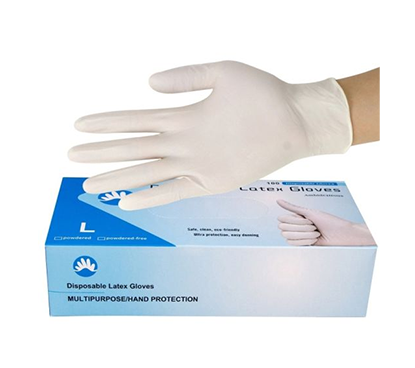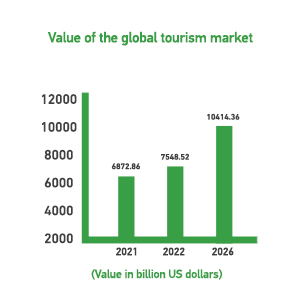Mashroo3k Economic Consulting Company offers a feasibility study for a medical gloves factory project in Qatar, with the highest return on investment and the best payback period. This study is based on a series of in-depth studies of the Qatari market size, an analysis of local and foreign competitors’ strategies, and the provision of competitive pricing.

The project provides a medical glove factory that manufactures various types of medical gloves, essential for doctors during medical examinations and surgeries. Demand for medical gloves has recently increased.
Mashroo3k Consulting provides investors interested in investing in a medical gloves factory project in Qatar with a range of specialized feasibility studies. These studies are based on up-to-date databases specific to the industrial sector and the health care products market in Qatar. This helps ensure the project’s success, achieve the highest return on investment, and secure the best payback period.



Executive summary
Study project services/products
Market Size Analysis
Risk Assessment
Technical study
Financial study
Organizational and administrative study

The Healthcare Sector in the GCC Countries
Mashroo3k Consulting presents key indicators and insights for anyone interested in investing in this vital sector and its projects across the GCC region:
The total number of hospitals in the GCC countries is 802, according to the latest statistics. The public sector accounts for 58.9% of these hospitals, while the private sector holds 41.1%.
Over 61% of physicians are based in the Kingdom of Saudi Arabia.
Among GCC countries, the United Arab Emirates recorded the highest percentage of physicians working in the private sector at 64%, followed by Bahrain at 44.8%, and Qatar in third place with 27.1%.
Kuwait recorded the highest percentage of physicians in the public sector at 79%, followed by Oman with 74.6%, and Saudi Arabia with 71.6%.
In Saudi Arabia, annual spending on digital health infrastructure is expected to increase from $0.5 billion to $1.5 billion by 2030.
The GCC region currently has around 700 healthcare projects at various stages of development, valued at approximately $60.9 billion. These projects include hospitals, clinics, and research centers, with 264 projects worth $24.7 billion currently under construction.
Throughout its journey supporting entrepreneurs and investors, Mashroo3k Consulting has developed a strong belief in the importance of the healthcare sector and its crucial role in economic development and national progress. Based on this belief, the company has decided to present some essential indicators and investment keys for those looking to enter this sector in the GCC region:
Healthcare expenditures in the GCC are expected to reach $104.6 billion in 2022, up from $76.1 billion in 2017.
Average healthcare inflation in the GCC is projected to decrease to 4% in the coming years.
In light of the expected increase in patient numbers, the GCC countries will need a combined hospital bed capacity of approximately 118,295 beds.
Artificial intelligence (AI) is expected to represent 30% of hospital investments in the GCC from 2023 through 2030.
The pharmaceutical manufacturing market in the GCC is expected to grow to a value between $8 and $10 billion.
The medical consumables manufacturing market in the GCC is set to flourish between 2025 and 2030, with a projected market size reaching $30 billion.

Global Healthcare Sector Overview (continued)
According to United Nations reports, the world population is expected to reach 8.5 billion by 2030, and by 2050, it is projected to rise to 9.7 billion. This population growth will undoubtedly lead to an increase in demand for healthcare services. For this reason, Mashroo3k Consulting strongly recommends investing in this vital sector.
Global health expenditure is also expected to rise at an annual rate of 3.9% between 2020 and 2024, which is significantly higher than the 2.8% annual growth recorded between 2015 and 2019.
It is also worth noting that the global average number of hospital beds per 1,000 people is only 2.9, and the number of physicians per 1,000 people is 1.8. In addition, there are only 4 nurses and midwives per 1,000 people. These figures fall short of the actual demand, which highlights the urgent need to increase investments in the healthcare sector to meet the rising demand for medical services.
Technological advancements have played a significant role in enhancing global healthcare services, contributing to improved survival rates and quality of life over the past decade. Experts predict that the global healthcare services market will grow from USD 6,872.86 billion in 2021 to USD 7,548.52 billion by the end of 2022. By 2026, the market is expected to witness substantial growth, reaching USD 10,414.36 billion, with a compound annual growth rate (CAGR) of 8.4% during the forecast period (2022–2026).